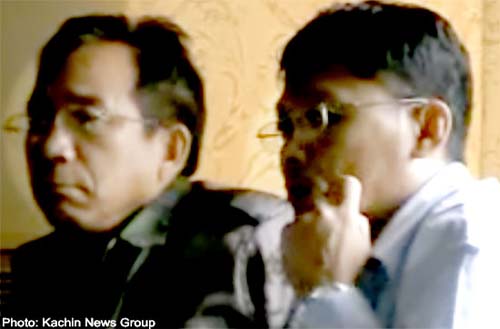The Kachin Independence Organization (KIO) wants to sign a meaningful and strong ceasefire agreement with the Burmese government this time, not like the agreement in 1994, which hampered a lot of rights and benefits for the Kachin people and the armed group itself, said a KIO official.

“The 1994 ceasefire agreement made us suffer for 17 years. We knew it was politically fruitless and the wrong agreement but we had to follow it. As a result, we have been highly criticized by Kachin people.”
The KIO signed the ceasefire agreement with the Burmese military regime without any political dialogue.
The KIO’s joint-secretary said the military backed government, which came into power through the 2008 constitution, should take the lead in negotiating a country-wide ceasefire and resolve political problems based on the spirit of the 1947 Panglong Agreement, the historic treaty forming a multi-ethnic Union of Burma by the four major ethnic groups--- the Burman, Shan, Kachin and Chin.
After the Panglong Treaty, a power struggle between the majority Burmans and ethnic minorities led to a war one year after Burma received independence from the British, in 1948.
A July 28 open letter written by Burma’s pro-democracy leader, Aung San Suu Kyi, strongly called for a ceasefire between the Burmese government, led by ex-general, President Thein Sein, and ethnic armed groups, including the KIO, Karen National Union (KNU), New Mon State Party (NMSP) and the Shan State Army (SSA).
The Burmese government started the civil war with the KIO again on June 9, after the failure of their Border Guard Force (BGF) proposal, which was rejected by the KIO several times.
The two sides have met three times within last two months in an attempt to sign a new ceasefire agreement.



